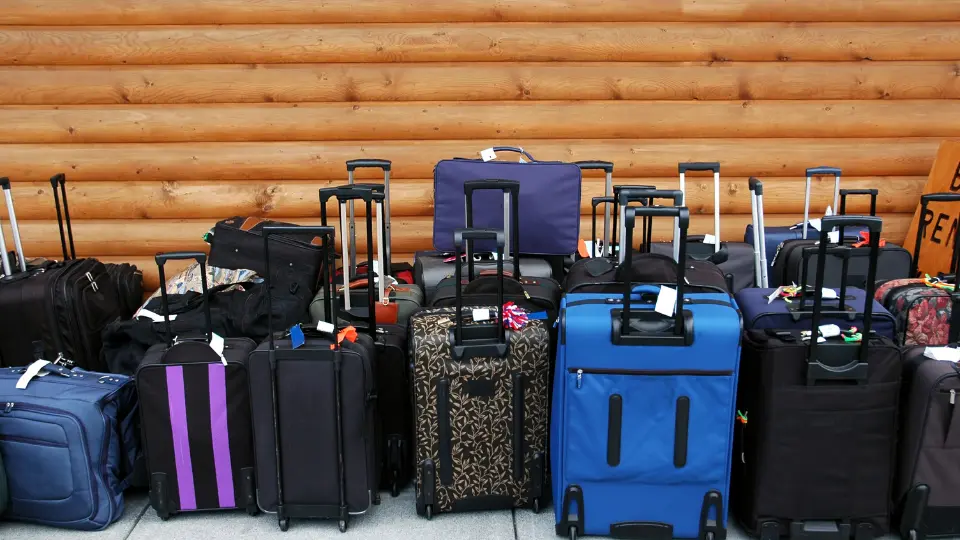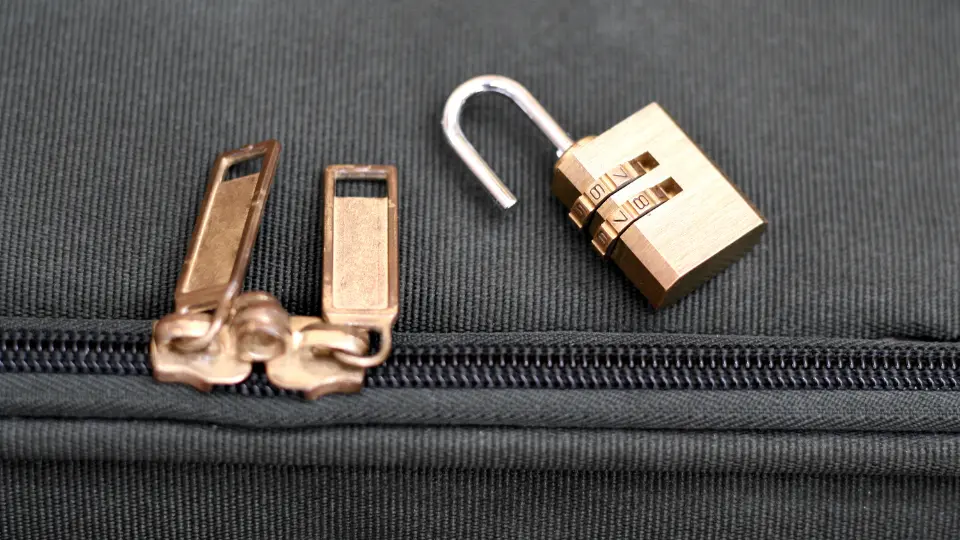Lock on luggage for international travel
Daily, we lock everything—including phones, offices, homes, and cars. However, when you travel, do you use Lock on luggage for international travel? Locking your bags is a good idea in many situations, not just before you check them in. Can you lock your suitcase when traveling abroad? If so, you’ve come to the right place since this comprehensive guide will teach you everything there is to know about locking your luggage on a plane.
My guide discusses many topics. The reasons behind the frequent mention of TSA locks and the procedures for both domestic and international travel. The value of everything we pack, including jewelry, electronics, and clothes, adds up. Based on research, the TSA only approves roughly one-third of all claims. Put another way, your chances of winning back a loss are slim. If the zippers on your backpack for men are made to accept an external lock, you can secure it with a lock. But luggage with integrated TSA-approved luggage locks is far better and safer.
Is Lock on luggage for international travel Allowed?
Certainly, whether you’re traveling domestically or abroad, luggage locks are permitted. Ultimately, you want to protect your belongings and reduce the likelihood that anything inside your luggage will be taken. Since unlocked bags are easier and faster to steal from thieves. Who are hoping to get a chance to grab something from one will usually choose to target those.

However, it’s vital to remember that some zippers are weak and can be readily opened with any other sharp object. Locked luggage, on the other hand, is more secure. However, locking your luggage can deter people from searching through it. But when it comes to locks, it’s best to go with TSA-approved ones. Which means that security personnel can open them using a master key.
A TSA-approved lock will make it easy for security personnel to open your bag if needed for additional inspection. Saving them from breaking the lock or, worse, your bag. There’s no reason to worry if you don’t have a TSA-approved lock because using other types of locks is still permitted. To put it briefly, you can use any lock you choose.
But keep in mind that if TSA needs to inspect the contents of your bag. They have the authority to break the lock or open your bag. In other nations, the situation is comparable to airport security. If your bag lacks a TSA-approved lock, they will probably have to pry it open to get at the contents. Make sure your lock is TSA-approved to avoid any issues because there’s a chance they won’t replace the broken bag or reimburse you.
When of locking your Luggag?
Whether or not to lock your luggage is a no-brainer. It concerns the kind of lock you use and the appropriate times to make sure your luggage is locked. Locking your bags serves more uses than just keeping your checked luggage safe while it’s not in your hands. There are many more occasions when using a lock to protect your checked and carry-on luggage is crucial.
Before you travel, lock your luggage.
Before your luggage leaves your hands at baggage claim, it is one of the most crucial times to lock it. Please set up your combination code before packing, then make sure it’s locked before checking in to ensure security.
Lock on luggage for international travel.
You can use your luggage lock for international travel for more than just US city-to-city travel. Most countries have access to TSA-approved locks, though not all do. While traveling across the ocean, there is no need to worry about luggage security. All checked bags in the US must be able to open, according to a TSA rule that is made public.
TSA-friendly locks are, therefore, prevalent in the US and other nations. They allow you to travel with peace of mind while allowing airport security to open your luggage. If necessary and lock it back up without causing any damage.
TSA-approved locks: what are they?
Luggage locks authorized by the Transportation Security Administration are called TSA locks. TSA officers are able to open any of these locks with a master key. So they can access your luggage without endangering the locking system or the case’s structure. Generally, a standard three-digit combination lock is TSA-friendly. When you first purchase the luggage. You can adjust the combination to your preference by simply following the instructions that come with it.
TSA-acceptable padlocks are an excellent option for luggage lacking an integrated lock. If TSA agents decide to inspect your luggage. There is very little chance that they will damage it because they can as quickly open these padlocks. Almost all contemporary luggage has a lock that is compliant with TSA regulations. While some highly inexpensive suitcases lack it. A suitcase that costs more than $100 to $150 will almost certainly have a lock approved by the TSA.
Are locks with TSA approval secure to use?
Although there is disagreement on this point, TSA-approved locks are usually regarded as safe to use. An image of the TSA master key surfaced online a few years ago. It was promptly taken down, but not before going viral, enabling almost anybody to print their TSA master key. It was a cause for concern.
Although the locks aren’t 100% secure, it would take a miserable person to target you with a homemade TSA master key. As there is very little chance of that happening, using these locks is safe on a larger scale. Among the safest locks available are the three-digit combination locks, which are very difficult to open if you need to know the combination.
It’s also important to remember that the TSA has approved locks that can be broken into. Anyone can guess the combination, though it takes much time and effort. Nevertheless, the likelihood of this occurring is still less than your chances of winning the lottery and changing the lock on your suitcase will only stop it a little.
Is it necessary to lock your luggage when traveling?
While it’s certainly not required, it is advised if you want to travel in peace of mind. You never know who you will give your bags to or what will happen to them; they could easily get misplaced or lost and wind up halfway around the globe. Anyone can search through your bag and take anything they want if it isn’t locked.
Most of the time, carry-on luggage always stays in your sight, so locking it is not necessary. However, your carry-on may wind up in the cargo hold if you’re flying on a small aircraft; it’s a busy flight, and you must arrive on time. In such a scenario, locking it will be a good idea for safety. If you have valuables in your luggage and plan to leave them in your hotel room for a while, lock it’s also a good idea.
You never know who might break into your hotel room—a thief through the window, for example, or someone with a key—but you can be sure they will want to leave as little evidence as possible. A locked suitcase typically puts them off, so keeping everything valuable locked up is a good idea.
How Are TSA Locks Operated?
TSA-approved locks can be customized with a combination and are typically built into the side of the luggage. If your bag requires an inspection, the TSA agent can quickly open your lock, examine its contents, and relock it before sending it undamaged.
Should your built-in Lock on luggage for international travel safe, you can secure it completely by fastening a padlock-style lock to the zippers of your bags. Many of these are still TSA-approved when you have the master key to the TSA luggage lock.

